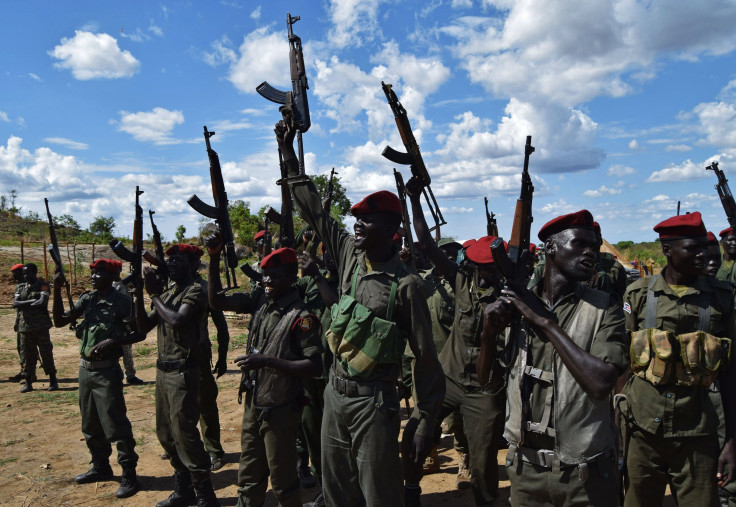South Sudan Violence: At Least 272 Dead In Clashes As Country Marks Fifth Anniversary

On Saturday, South Sudan marked the fifth anniversary of its independence from Sudan with a military lockdown in its capital Juba after fighting broke out between troops loyal to President Salva Kiir and soldiers who support Vice President Riek Machar.
The violence erupted Thursday near the presidential compound at the heart of the city and continued to Saturday. Gunfire was heard Sunday morning in south-west Juba near an army barracks and a United Nations base. The fighting left at least 272 people dead, including 33 civilians, a source told Reuters.
“For about 30 to 40 minutes we heard sounds of heavy artillery in the direction of Jebel area,” an aide worker based in Juba reportedly said.
An Al Jazeera source present in the city said, “There were some loud booms, audible from 10km away. We are told that fighting has now stopped, some two and a half hours later, but it involved tanks, small arms fire and helicopter gunships, so it appeared to be a pretty massive confrontation.”
Local media reports said that at least 147 people were dead after the weekend violence. Spokesman for Machar’s military faction William Gatjiath Deng reportedly said, “In the morning we collected and counted 35 [dead] from the SPLM-IO [Sudan People's Liberation Movement-in-Opposition, Machar's faction] and 80 people from the government forces.” He added that the death toll might rise on Machar's side “because there are some soldiers seriously wounded.” At least five soldiers have died so far.
He added that the fighting had happened near the presidential compound, known as the State House, and in army barracks.
South Sudan became the world’s newest country on July 9, 2011. It gained independence from Sudan after a referendum that passed with nearly a 100 percent vote. However, the country went into crisis in December 2013 when President Kiir accused Machar, his former deputy whom he sacked earlier, of plotting a coup.
A civil war broke out with Kiir’s Dinka ethnic group targeting those from Machar’s Nuer ethnic group. Machar and his loyalists were forced to flee to the countryside. The war left thousands dead and pushed several civilians to starvation.
A peace agreement was signed in August and both leaders formed a new government two months ago. But, fighting still continues in many parts of the country.
United Nations Secretary-General Ban Ki-moon on Friday urged the two leaders to end the fighting to work together to implement a peace deal. He reportedly described the violence as “yet another illustration of the parties’ lack of serious commitment to the peace process.”
© Copyright IBTimes 2024. All rights reserved.





















